How AI is Transforming 6 Major Industries
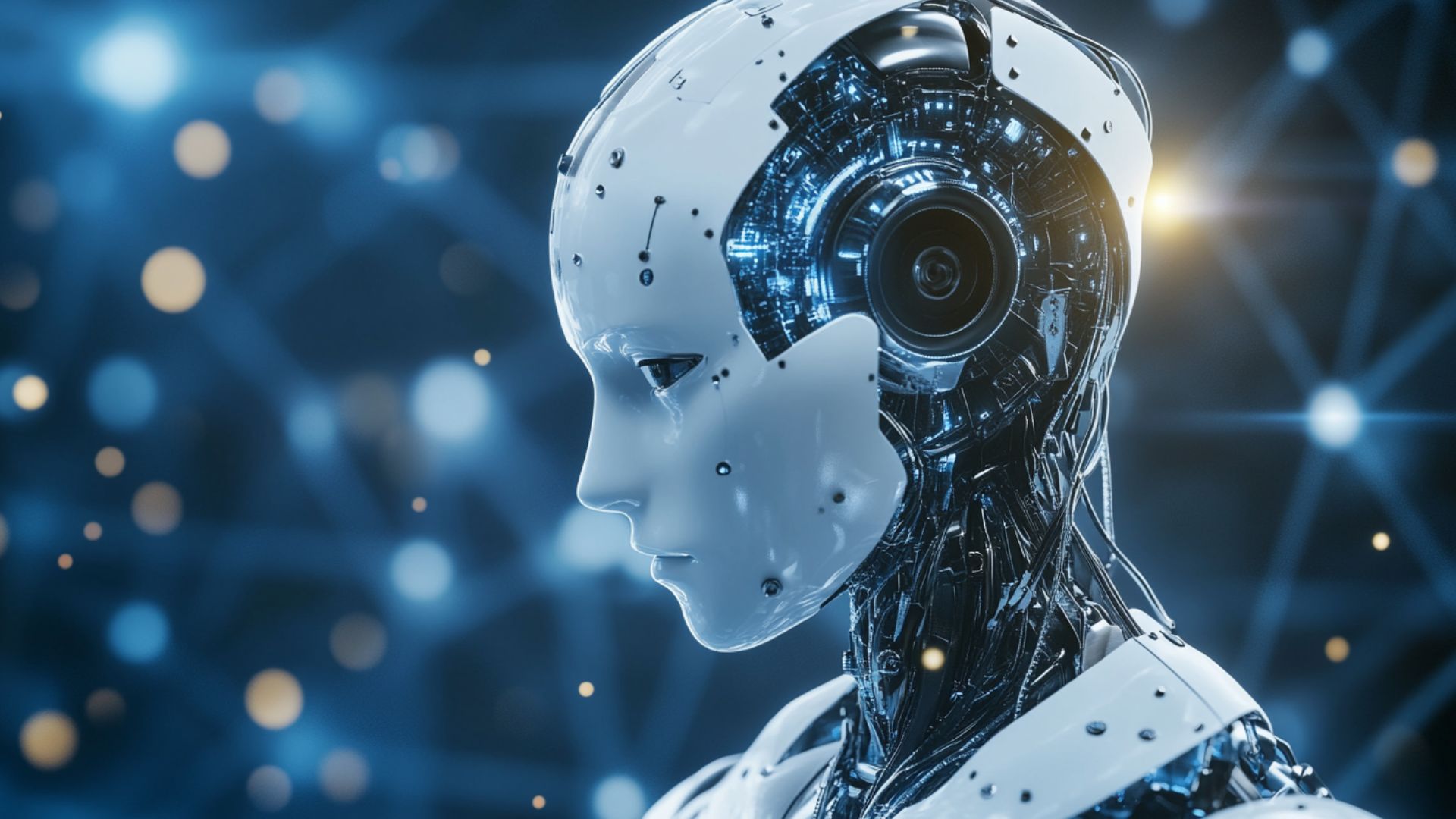
Many organizations use AI to augment human capabilities and drive meaningful transformation. Modern AI implementation enables companies to achieve not only operational success but also substantial business growth. Companies can provide personalized customer assistance and streamline internal operations. Industries adopting artificial intelligence deliver quality services through intelligent automation.
AI encompasses numerous technologies that positively impact continuous monitoring, decision-making, and security enhancement. Intelligent monitoring combined with human expertise creates more productive work environments. Examining six key industries reveals how artificial intelligence is reshaping modern business.
Why AI Adoption is Growing Across Industries
Automation is accelerating across various industries as technological advancements help businesses succeed in competitive markets. Enterprises are increasingly viewing AI as a powerful and reliable tool for enhancing efficiency. Here are the key global drivers for AI adoption:
- Advanced computing power. Processor development makes AI more accessible and easier to integrate into existing systems. This enables industries to implement innovative solutions and realize substantial benefits quickly.
- Big data availability. Industries using AI gain access to massive datasets for training and optimization. Digital transformation leads to improved service delivery and computational capabilities. Machine learning algorithms train on these datasets to make accurate predictions and informed decisions.
- Competitive pressure. Intense competition pushes companies to adopt cutting-edge technologies for survival. AI offers improved quality, operational efficiency, and numerous competitive advantages. It automates routine processes, customizes customer interactions, and enhances overall user experience.
Companies view AI as a strategic tool to significantly reduce operational costs. Many businesses enhance efficiency and develop entirely new business models through the integration of AI in industries.
AI in Healthcare: Precision Medicine and Patient Care
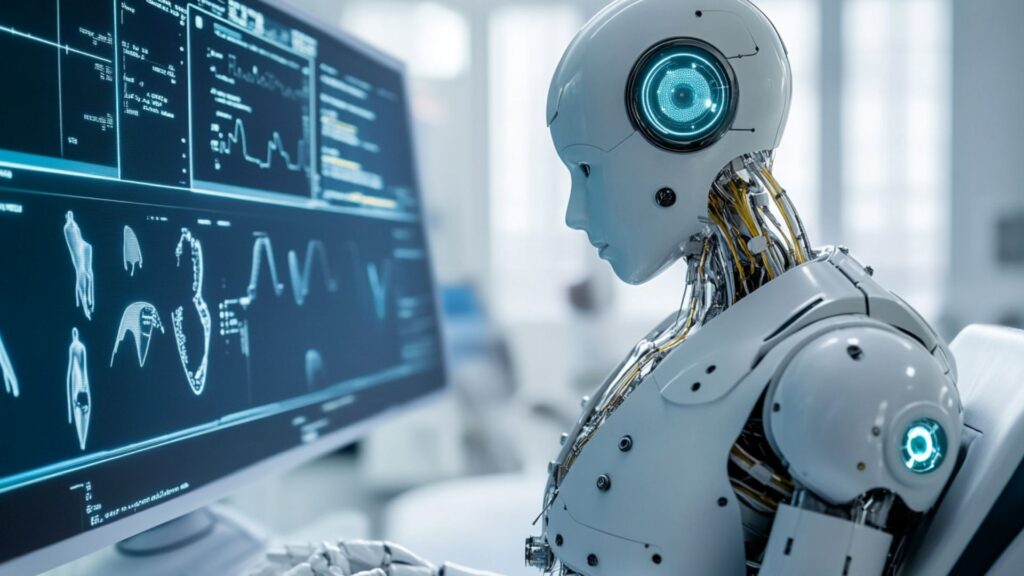
Artificial intelligence is revolutionizing the healthcare industry with transformative benefits. Modern medicine is experiencing unprecedented advances through intelligent automation. This transformation is driven by personalized patient care and workflow optimization. Here's how AI is changing healthcare:
- Medical diagnostics. AI-powered algorithms analyze medical images, including X-rays, CT scans, and MRIs, to accurately diagnose various conditions. Advanced diagnostics enhance care quality and facilitate early disease detection, resulting in improved patient outcomes.
- Personalized treatment. Healthcare is among the industries benefiting most from artificial intelligence implementation. AI systems assess patient conditions and analyze comprehensive medical histories to inform treatment decisions. Based on this data, physicians can optimize medication dosages and more effectively monitor patient outcomes.
- Drug discovery. AI significantly accelerates the discovery and development of new medications. Machine learning models speed up vaccine development and predict drug effectiveness for various conditions. AI identifies promising molecular compounds essential for creating life-saving medicines.
- Workflow optimization. AI manages scheduling, sends automated notifications, and handles administrative tasks efficiently. This process reduces operational bottlenecks and provides personalized support to healthcare staff and patients.
The implementation of AI in medical and healthcare industries presents several significant challenges. Organizations must address algorithmic bias and ensure continuous learning from diverse datasets to improve their performance. Patient privacy remains critically essential due to the sensitive nature of health information processing. Transparency and accountability must be maintained to minimize ethical concerns and build public trust.
AI for Diagnostics and Imaging
Artificial intelligence is making significant breakthroughs in medical diagnostics and imaging, leading to enhanced treatment planning. AI utilizes machine learning models to accurately process and interpret complex medical data. Understanding "what industries use AI?" and how it works in medicine is essential. These advanced models analyze images for detailed clinical research and diagnosis. AI systems evaluate MRI, CT, and X-ray images with remarkable precision. The technology detects anomalies and patterns that human observers might miss during initial examination.
AI-powered diagnostics achieve higher accuracy compared to traditional diagnostic methods. Accuracy and consistency are the primary advantages of using AI-based diagnostic tools. Understanding which industries use AI most extensively reveals healthcare as a leading sector. The implementation of AI significantly reduces diagnostic errors, directly improving patient safety and health outcomes. Modern systems offer diagnostic accuracy comparable to experienced specialists through continuous learning and improvement.
AI in Drug Discovery and Treatment Personalization
Understanding which industries use AI most extensively reveals healthcare and pharmaceuticals as leaders. Artificial intelligence is widely deployed in medicine and drug development processes. AI transforms how researchers develop medications and personalize treatment protocols. Here are the key advantages and results:
- Accelerated drug development. AI-based models analyze vast datasets to identify promising drug candidates. Machine learning improves understanding of molecular interactions with biological targets throughout the body. This process significantly speeds up drug development timelines. The drug development cycle is reduced by 40-50%, resulting in a savings of years of research time.
- Early safety prediction. AI models simulate compound behavior in biological systems before human testing. This capability helps predict potential side effects during early development stages. Researchers can eliminate drugs that may have reduced effectiveness or cause harmful reactions before costly clinical trials.
- Personalized oncology treatment. Medicine and drug development are among the industries most impacted by AI adoption. AI integrates clinical data and genomic information for individual patients. Advanced algorithms identify gene mutations, biomarkers, and patterns of treatment response. This process enables AI to recommend optimal treatment plans, particularly in oncology and rare diseases.
- Improved treatment outcomes. The primary advantages include minimizing adverse side effects and significantly enhancing treatment effectiveness. AI models track patient progress and help physicians adjust therapy in real-time based on response. Various AI-powered platforms enhance the process of discovering diseases and developing targeted medications.
AI in Finance: Smarter Decisions and Risk Management
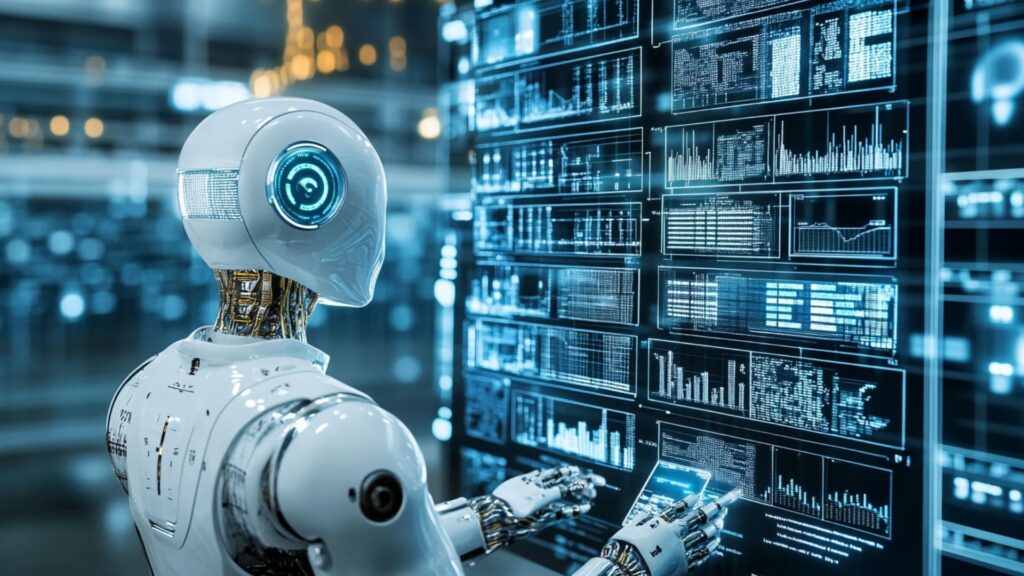
Artificial intelligence in finance enables institutions to achieve high levels of security and operational efficiency. AI systems identify risks and detect fraud at early stages before significant damage occurs. With proper implementation, financial companies can monitor transactions and activities in real-time. Finance is among the AI industries reaching new security standards for customer protection.
Key applications include:
- Fraud detection and prevention. AI-based models detect and prevent fraudulent activities through pattern recognition. Models learn from historical data, identify anomalies, and adapt to emerging fraud methods. Banks deploy these tools to flag suspicious credit card activity and unauthorized account access.
- Credit scoring and lending. AI revolutionizes credit scoring and loan evaluation processes for better accessibility. Machine learning evaluates diverse data sources, enabling more accurate and inclusive lending decisions. AI improves loan access for underserved populations while maintaining responsible lending standards.
- Risk management. AI excels at risk modeling and portfolio management for financial institutions. Advanced algorithms assess market volatility and optimize investment strategies accordingly. Financial institutions use predictive models to allocate funds more effectively and minimize exposure.
- Market analysis. AI systems in finance process market data in real-time for competitive advantages. Models continuously learn from global markets, detecting trends and price movements to improve trading efficiency.
When implementing AI in different industries, organizations must carefully examine privacy and transparency concerns. Regulators require that financial decisions be explainable and fair to all customers. Compliance with laws and regulations helps improve institutional trust and ensures accountability. AI systems should avoid perpetuating existing biases and serve as valuable complements to human expertise.
AI for Fraud Detection and Security
Artificial intelligence plays a crucial role in finance, enabling the detection of fraud and enhancing security measures. AI systems analyze enormous volumes of transaction data and identify suspicious patterns instantly. The primary benefit is detecting fraudulent activities at early stages before significant losses occur. AI implementation in financial sectors is vital for identifying suspicious behavior and protecting customer assets. This approach minimizes false alarms while improving customer trust through reliable security.
AI in industries enhances security through advanced biometric authentication technologies. Facial recognition, fingerprint scanning, and voice analysis provide robust identity verification. These technologies enhance customer verification security while minimizing the risk of identity theft. Banks utilize facial and voice recognition in mobile applications to provide convenient and secure access to accounts.
AI in Investment and Customer Service
Artificial intelligence in the financial industry offers numerous transformative advantages. AI is revolutionizing how institutions interact with customers and deliver investment management services through automation. Robo-advisors and AI chatbots support customers with fast, personalized responses around the clock. Here are the main advantages of AI in financial services:
- Robo-advisors for investment: Robo-advisors utilize sophisticated algorithms to analyze market data and trends continuously. They provide automated financial advice and portfolio management 24/7 to clients. Investment services are becoming accessible to a broader audience at lower costs than traditional advisors. Well-known platforms use AI to optimize portfolios for tax efficiency and long-term growth.
- AI chatbots for banking: Intelligent chatbots handle thousands of customer interactions simultaneously with consistent quality. They operate continuously, responding to various inquiries and providing immediate support for common issues. Natural language processing ensures clear communication that feels natural and helpful to customers.
- Predictive wealth management: Financial institutions use AI-powered predictive models for sophisticated wealth management. Machine learning analyzes market conditions and forecasts future trends with increasing accuracy. Asset performance and customer behavior patterns are analyzed continuously. This process facilitates more informed investment decisions and effective portfolio optimization. Financial advisors utilize this data to develop personalized strategies that promote client success.
AI in Retail: Personalization and Supply Chain Optimization
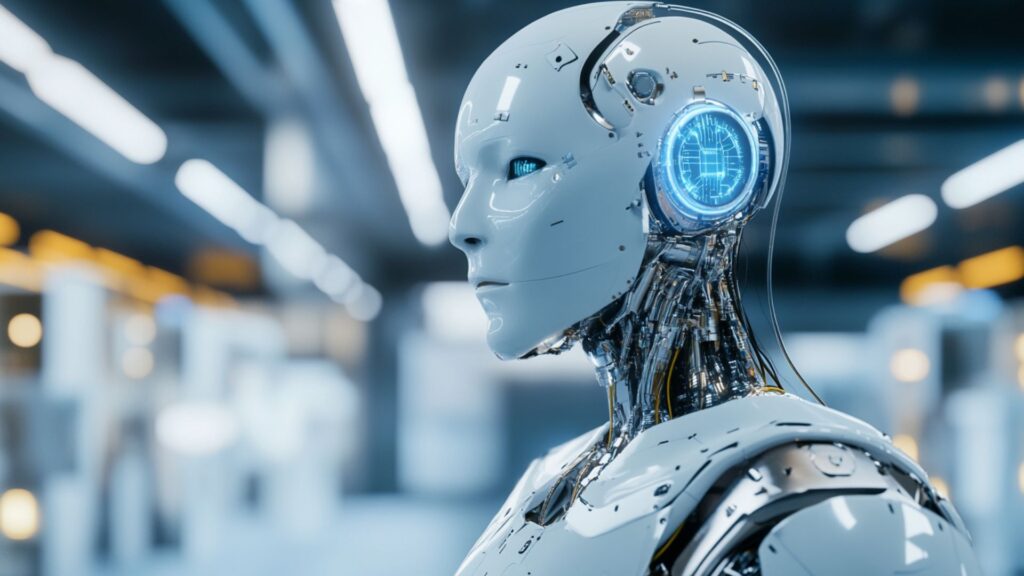
AI plays a transformative role in modern retail operations. Artificial intelligence increases operational efficiency while reducing costs across the retail value chain. Employees can improve customer communication and achieve better profitability through AI-powered tools. Many leading brands use AI to manage inventory, optimize pricing, and forecast demand. AI helps retailers achieve optimal results, particularly in competitive markets. Here are the key benefits:
- Customer engagement. Retail is among the industries that use AI most successfully to enhance customer satisfaction. AI analyzes customer behavior patterns and past purchase history in a comprehensive manner. This process enables personalized recommendations and targeted offers that resonate with individual shoppers.
- Product recommendations. Personalized recommendation engines use machine learning to suggest relevant products to customers. Systems recommend items that are similar, frequently purchased together, or popular among customers with similar interests.
- Dynamic pricing. Real-time pricing optimization and demand forecasting drive revenue growth. Algorithms continuously analyze product demand, adjusting prices in response to market conditions. This approach enables companies to develop effective pricing strategies while maintaining competitiveness.
- Supply chain logistics. AI optimizes delivery routing and warehouse management for maximum efficiency. This ensures goods are delivered on schedule without transportation delays or vehicle capacity issues.
AI-Powered Customer Personalization
AI-driven customer personalization is essential for modern retail success. AI analyzes comprehensive data and past customer interactions to understand preferences. Machine learning continuously examines browsing history, purchase patterns, and engagement behavior. This process enables machine learning models to refine recommendations with increasing accuracy. Many leading retailers utilize these systems to boost conversion rates and enhance customer engagement.
A significant advantage of AI is its ability to enable real-time price adjustments based on multiple factors. Pricing responds dynamically to seasonality, inventory levels, and competitor pricing strategies. This approach helps increase revenue while maintaining a loyal customer base through fair pricing. Retail is among the most popular artificial intelligence industries for enhancing customer satisfaction. E-commerce platforms exemplify this through sophisticated demand-driven pricing algorithms.
AI in Inventory and Supply Chain
Artificial intelligence fundamentally transforms inventory management and supply chain operations. AI-powered models accurately forecast demand based on historical data and market analysis. Machine learning algorithms analyze market trends, seasonal patterns, and external factors comprehensively, enabling a deeper understanding of the market. This process helps predict future demand, enabling retailers to maintain optimal inventory levels. Companies avoid costly stockouts and excess inventory that ties up capital. Retailers significantly reduce waste and lower storage costs through precise demand forecasting.
Inventory and supply chain management are among the industries most impacted by AI adoption. Robotics and automation enable the rapid sorting and packing of goods with minimal errors. Computer vision enables robots to identify and efficiently move various products throughout warehouses. The primary advantage is accelerated order processing and reduced physical burden on workers. Companies lower labor costs while avoiding costly human errors in fulfillment operations.
AI in Manufacturing: From Smart Factories to Automation
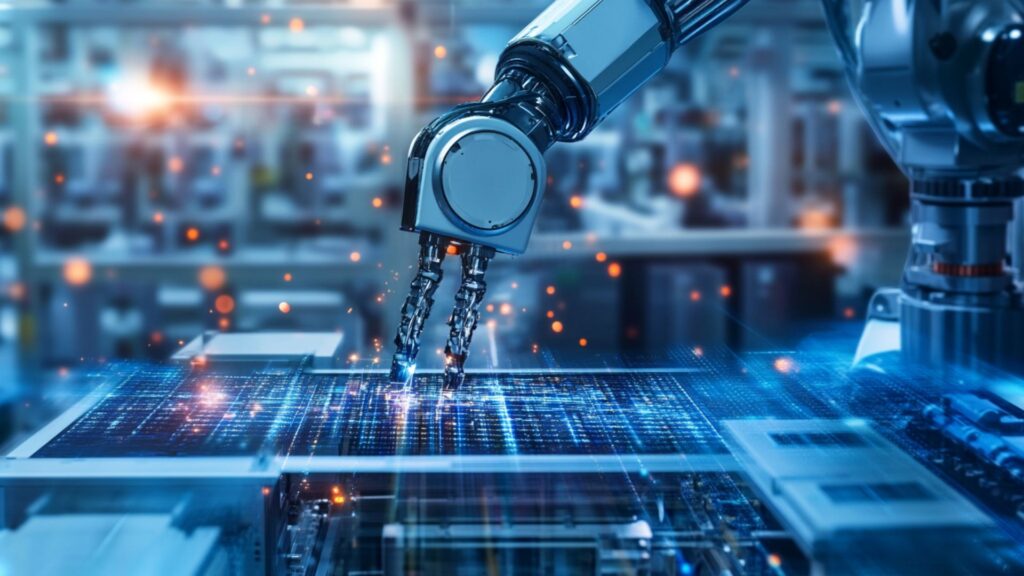
The implementation of AI in industries such as manufacturing delivers substantial operational benefits. Artificial intelligence integrates sensors, robotics, and machine learning into cohesive production systems. Workers can predict equipment failures and optimize operations proactively. These innovations significantly increase company revenue, reduce costs, and improve overall efficiency. AI is elevating manufacturing to new operational standards by creating intelligent production ecosystems. Here are the primary benefits:
- Predictive maintenance: Predictive maintenance programs help companies save substantial costs by preventing downtime. AI analyzes data from sensors and equipment continuously to identify potential issues. Machine learning models detect patterns in temperature, vibration, and performance metrics. This process signals impending malfunctions or component wear before failures occur, enabling scheduled maintenance.
- Quality control: Artificial intelligence in the manufacturing industry creates increased control. Computer vision systems monitor production processes continuously with unprecedented accuracy. Machine learning significantly enhances defect detection capabilities beyond those of human visual inspection. Companies achieve higher product quality while significantly reducing the number of recalls and warranty claims.
- Robotics and automation: AI-powered robotics is indispensable for modern manufacturing operations. Intelligent robots reduce human error while eliminating physical strain on workers. AI provides real-time adaptation to changing conditions combined with consistent speed. Companies increase productivity substantially while improving workplace safety for employees.
- Manufacturing optimization: Manufacturing is among the artificial intelligence industries gaining excellent automation capabilities. AI provides continuous monitoring and detection of production bottlenecks in real-time. Companies optimize energy consumption and reduce waste throughout operations. Facilities achieve high efficiency levels while significantly reducing energy costs and environmental impact.
AI in Education and Transportation: Future-Oriented Transformation
AI is deployed across numerous sectors, with education and transportation showing particularly strong growth. These two vital sectors are experiencing significant transformation and demonstrating high effectiveness. Artificial intelligence creates optimal learning environments tailored to each student's individual needs. In transportation, AI improves autonomous systems and mobility infrastructure.
- Intelligent tutoring platforms offer personalized educational support tailored to individual learning styles. AI continuously analyzes student progress and identifies knowledge gaps that require additional attention.
- AI in different industries, especially in education, offers adaptive learning platforms. These systems increase student engagement and offer customized learning paths based on performance data.
- AI assists teachers by automating the grading and assessment of routine assignments. This allows educators to focus on creativity, critical thinking, and direct student interaction.
- AI provides enhanced navigation and real-time decision-making for vehicles and drivers. Computer vision technology identifies road conditions, obstacles, and traffic patterns to enhance safety.
- AI systems analyze traffic data in real-time across urban networks and highway systems. Predictive models forecast traffic patterns and prevent bottlenecks through intelligent routing suggestions.
- Transportation is among the AI industries using machine learning for logistics optimization. Systems plan efficient routes and coordinate deliveries across complex networks. Predictive analytics enables companies to minimize delays and enhance customer satisfaction.
Conclusion: The Cross-Industry Impact of AI
Artificial intelligence is deployed across various sectors to enhance productivity and drive innovation. AI is driving transformation in many vital industries, including healthcare, finance, retail, transportation, manufacturing, and education. Understanding which industries use artificial intelligence most extensively reveals its widespread effectiveness and growing importance.
Artificial intelligence delivers a comprehensive impact across diverse business sectors. Utilizing appropriate AI tools can substantially improve efficiency throughout work environments. Customers receive instant answers and personalized recommendations in real-time interactions. Industries that fail to implement AI risk falling behind competitors in rapidly evolving markets. The global economy is developing at unprecedented speed, particularly in the digital transformation era. Organizations that embrace AI strategically position themselves for long-term success and continued growth.


